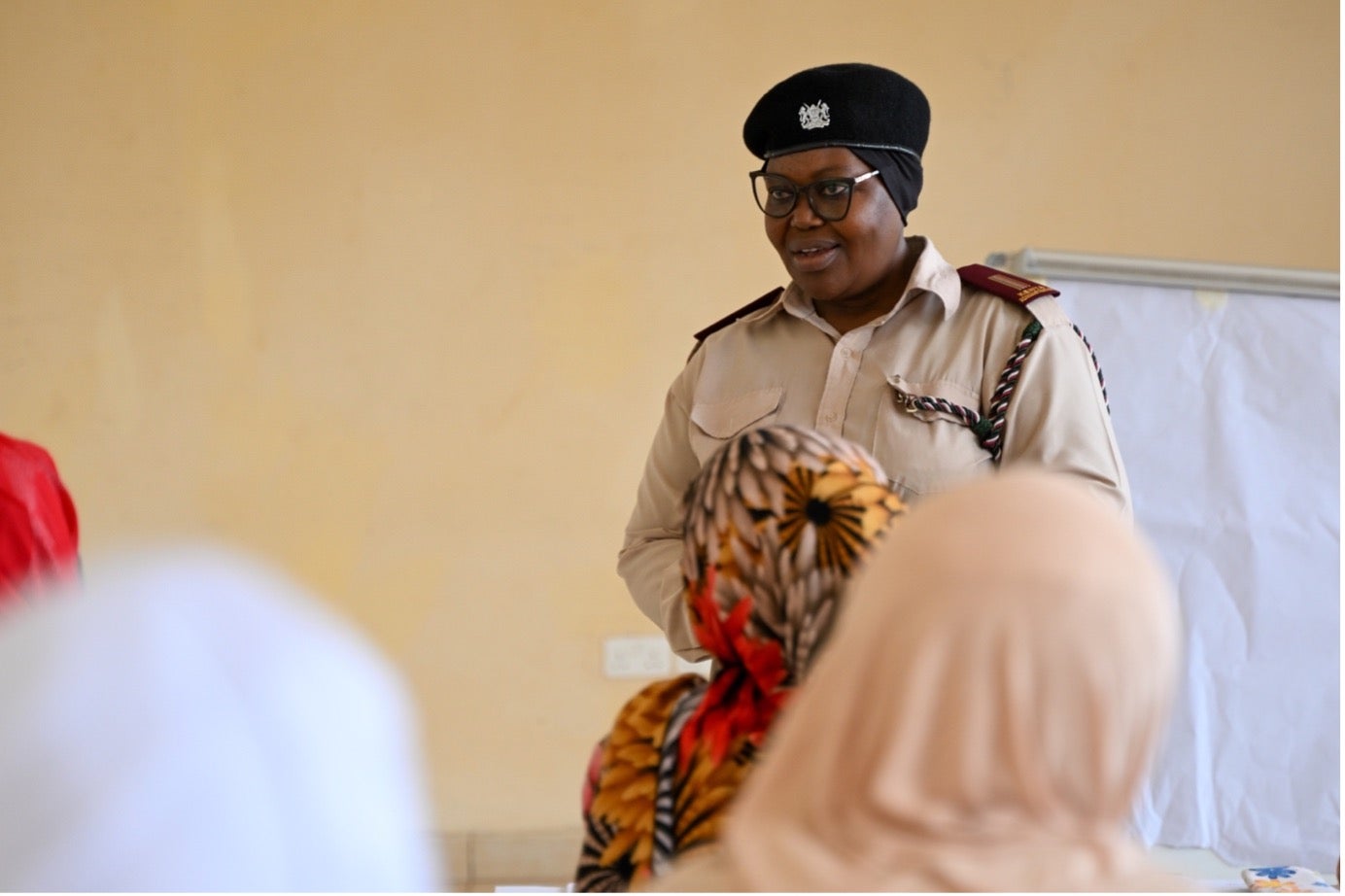From Where I Stand: I am a role model in peace and security
Date:

I grew up here, so this community is my home. In 2016, when the position of Assistant Chief was announced, it was made clear that the role would go to a woman. I applied, went through the interview process, and passed. I am grateful to the people of Kwale for believing in women in leadership positions. Since then, the community has embraced the leadership of women, which has been transformative.
Before I assumed my role, issues like violent extremism and sexual and gender-based violence were deeply affecting women. Over time, the situation has improved. The government has worked hard to raise awareness about peacebuilding through platforms like Nyumba Kumi, (community policing structures) and the community has become more informed. As a result, these issues are decreasing, and women are no longer afraid to approach government offices to voice their concerns.
One of the most significant changes I have seen is how women now feel empowered to seek help. They are no longer hesitant to approach the chief or the police, which was not the case before. Thanks to support from development partners such as UN Women, more women are stepping into leadership roles and participating in peace processes. Government officers, along with the community, are working together to ensure that violence continues to decrease, with youth playing a key role as champions of peace.
In Kwale County, women have taken the lead in peace initiatives. After years of electoral violence and extremism, it is inspiring to see women standing at the forefront of peacebuilding efforts. Today, we are not just participants but leaders, taking charge in local governance structures. Women are engaging in larger numbers than ever before, making their voices heard in decision-making spaces.
Before violence erupts, there is always a root cause, and it is essential to identify and address it early. We create forums where people can listen to one another, and as women leaders, we bring our experiences to help find solutions. As a chief, I hold Barazas (community meetings) regularly, and women have become more active in these sessions. We urge them to take leadership roles in peace initiatives and they have embraced this with enthusiasm. Women now serve as ambassadors, holding meetings at the grassroots level and gathering valuable information to share with the government. Their willingness to lead has made it easier for the community to access critical information.
There was a time when communities viewed women as weaker figures, but that mindset has shifted. Today, even children see the value of women in leadership. People feel comfortable approaching my office and other women leaders because of the trust we have built. The service delivery has improved, and we have shown that women are just as capable of leading, if not more.
Collaborating with organizations like UN Women has greatly improved the situation for women in leadership. They have facilitated meetings and created awareness about UN Security Council Resolution 1325, which emphasizes the importance of including women in peace and security processes. These efforts have made a tangible difference—more children are attending school, child labor has decreased, women are stepping up in leaderhsip positons and SGBV cases are declining.
By involving women, who are natural peacekeepers, we have made significant progress. This approach can and should be replicated in other counties.
I feel a deep sense of pride when I see the peace in our community, knowing that development can now flourish, and people can live without fear. Women need to be trusted with leadership roles, and they need to take an active interest in peace-building.
Being a champion of peace-building has earned me the respect of many. Women look up to me as a role model, and that inspires me to keep pushing forward. When I first took office, people doubted whether I could succeed. Today, I am a living testament to the power of women in leadership. I encourage all leaders, especially women, to consult with their communities and work together with stakeholders to lead effectively.
All leaders, regardless of hierarchy, need to be involved in decision-making processes to ensure informed and effective leadership. The government plays a crucial role in making this happen. Let us hold hands and build a future where women and girls not only participate in peace processes but lead them.
***
Ali Ninjama, the Assistant Chief of Simkumbe Location in Tiwi, Kwale County, is a trailblazer in peace and security matters. With the support of UN Women’s initiatives, she has mobilized her community to become active participants in peace-building. In 2021, UN Women Kenya launched a project to amplify women’s voices in peacebuilding and prevent electoral-based and extreme violence in Kwale County. Partnering with Human Rights Agenda (HURIA), this two-year mission empowered women and youth, nurturing their leadership skills and integrating them into governance, peace, and security decisions. The project’s focus on localized action plans, gender equality, and preventing violent extremism has been instrumental in creating real change.